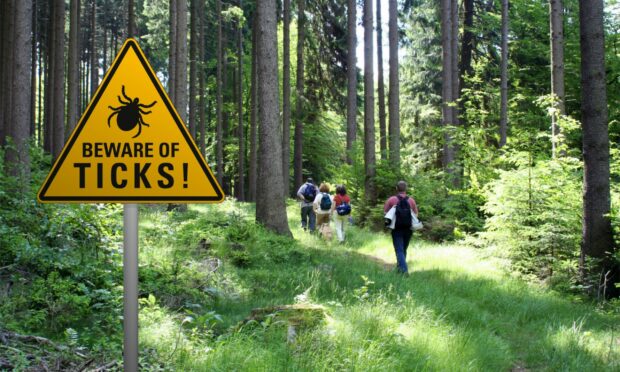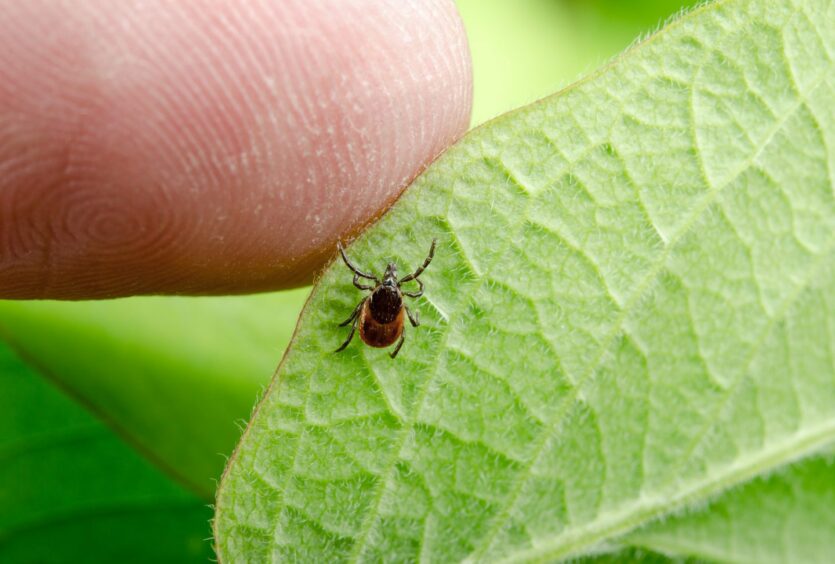The first-ever conference on tick-borne diseases will be held in Inverness later this month.
Entitled NorthTick 2023, the conference will bring together international agencies, academic institutions and health boards.
The aim is to meet the challenges as the number of ticks and tick-borne diseases rises, which can negatively impact society.
Representatives from several countries are due to attend, including Denmark, Sweden, Norway, Germany, Belgium, the United Kingdom and the Netherlands.
The Highlands are well-known for being a haven for ticks, with long grass and animals such as deer providing a food source for the little critters.
During the warmer months, ticks are more prevalent and with more visitors to the
Highlands, there can be an increased risk.
People most at risk are those participating in outdoor activities such as hillwalking, hiking and mountain biking, so long clothing is suggested.
‘The health impacts can sometimes be large’
Ticks have also been an issue out in the Western Isles, where there is a large deer population with crofters often complaining of ticks.
The NorthTick2023 is the first of its kind in the UK and will use the information gathered to inform future research.
Dr Sally Mavin, director of the Scottish Lyme Disease and Tick-borne Infections Reference Laboratory said: “The distribution of ticks is expanding and the number of people and animals afflicted by tick-borne infections is on the rise.
“The reasons for this are complex and may include climate change, increased urbanisation and other human influences on ecosystems.”
“While the probability of a tick-borne infection is low, the health impacts can sometimes be large.
“It is challenging for health services and authorities to be updated on optimal strategies for prevention and management of Lyme disease, to keep up with other emerging tick-borne microorganisms and infections, and to give adequate information to a concerned public.”
A special event on June 1 at Raigmore Hospital will be held for anyone interested in learning about tick-borne diseases.


Conversation